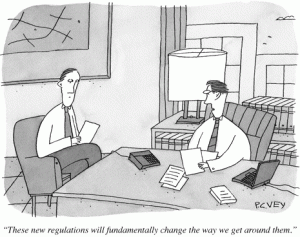From GCR Live 8th Annual Brussels Conference: The Bigger Picture
11 July 2016 – Pointing to the European Commission’s clearance of Anheuser-Busch Inbev/SABMiller, John Davies at Freshfields Bruckhaus Deringer said the enforcer’s approach to merger review is shifting towards a US-like system in which burdensome document requests are required.
The time has come for the European Commission’s Directorate-General for Competition to step back and review some of its procedural steps so that the EU’s merger control system remains effective, Davies said at a GCR conference in Brussels today.
When it comes to complex cases, the EU’s system has morphed into a transatlantic hybrid, he said. Merging companies in the EU need to produce a detailed notification that set out their arguments, but it is now common for DG Comp to also request large amounts of information. This burdensome system is effectively a combination of the traditional EU and US approaches, he said.
Davies pointed to the commission’s recent clearance of AB InBev/SABMiller, in which he acted for the buyer. He said the notification was approximately 550 pages long and contained 145 annexes:
“We also had to review 142,000 documents, and ultimately provided approximately 30,000 to the commission. And that’s a Phase I case. This all comes in the context of having to reply on short notice – sometimes in a matter of three to four days.”
Moreover, Davies is not only concerned about the scale of the request, but also about what is done with that information, he said. Conclusions are being drawn about documents without the enforcer asking the company what those documents mean, Davies said. In some enforcer meetings, Davies said, case handlers have put documents before his clients without any warning, and have asked them what they mean:
“At least in the US process, the individuals know they will be deposed and that they need to be prepared. I’m not advocating for a change to the US system. What I’m suggesting is, as certain processes are imported, we need to think about the implications”.
The conference concludes tomorrow.
